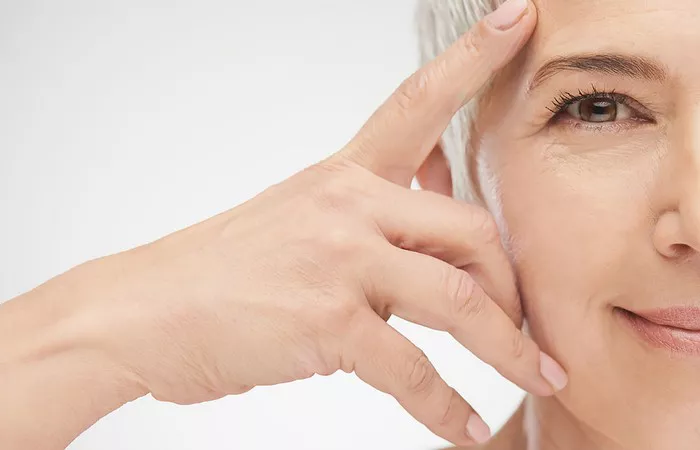The pursuit of youthful and radiant skin is a timeless endeavor, prompting many to inquire about the optimal age to start incorporating anti-aging products into their skincare routine. In this comprehensive guide, we delve into the nuances of anti-aging products, addressing the importance of early skincare habits and unveiling the science behind when to initiate the use of these products for a lifetime of healthy and vibrant skin.
Understanding Anti-Aging Products
Defining Anti-Aging Products:
Anti-aging products encompass a diverse range of skincare formulations designed to address and prevent signs of aging. These may include ingredients such as antioxidants, retinoids, peptides, and hydrating agents, each playing a unique role in promoting skin health and resilience.
Common Anti-Aging Concerns:
The key concerns targeted by anti-aging products include fine lines, wrinkles, uneven skin tone, loss of elasticity, and environmental damage. These products aim to mitigate these effects, fostering a more youthful and revitalized complexion.
Early Skincare Habits
Adolescence to Early Adulthood:
Establishing a solid foundation for skincare begins in adolescence. Basic practices such as cleansing, moisturizing, and sun protection lay the groundwork for a lifetime of healthy skin. While anti-aging products may not be necessary at this stage, preventive measures become increasingly crucial.
Sun Protection as a Cornerstone:
Sunscreen is a paramount component of early skincare. Protection against UV rays helps prevent premature aging and diminishes the likelihood of developing sunspots, fine lines, and other sun-induced damage.
The Science Behind Aging
Late 20s to Early 30s:
As individuals enter their late 20s and early 30s, subtle changes in the skin’s structure and function commence. Collagen production decreases, and the skin’s natural renewal process begins to slow. This marks the period when the incorporation of anti-aging products becomes a proactive step.
Preventive Measures: Antioxidants and Hydration:
Antioxidants, such as vitamin C and E, become valuable allies in this phase. These ingredients combat free radicals and contribute to the prevention of oxidative stress. Additionally, maintaining optimal hydration supports skin elasticity and suppleness.
Choosing the Right Anti-Aging Products
Skin Type and Concerns:
The selection of anti-aging products should align with individual skin types and specific concerns. Whether addressing dryness, fine lines, or hyperpigmentation, tailoring the skincare routine enhances efficacy and minimizes the risk of adverse reactions.
Introduction of Retinoids: Late 20s to Early 30s:
Retinoids, derivatives of vitamin A, are potent ingredients known for their ability to stimulate collagen production and encourage cell turnover. Their introduction into a skincare regimen is often recommended in the late 20s or early 30s for their preventive and corrective benefits.
Navigating the 40s
Midlife Changes:
The 40s bring about more noticeable changes in the skin, including a reduction in collagen and elastin. Fine lines may deepen, and sun damage becomes more apparent. This phase warrants an intensified approach to anti-aging skincare.
Targeted Treatments: Serums and Retinol:
Serums enriched with potent ingredients, such as peptides and growth factors, can address specific concerns. Retinol, a milder form of retinoid, continues to play a pivotal role in promoting skin renewal and minimizing the appearance of wrinkles.
Late 40s and Beyond
Individualized Solutions:
Entering the late 40s and beyond requires a highly individualized skincare approach. Products that focus on hydration, collagen support, and advanced anti-aging ingredients become integral in maintaining skin vitality.
Collagen-Boosting Ingredients:
Peptides and growth factors, renowned for their collagen-stimulating properties, become particularly beneficial. These ingredients aid in firming and rejuvenating the skin, countering the effects of intrinsic aging.
Holistic Approaches
Healthy Lifestyle Practices:
While anti-aging products contribute significantly to skincare, holistic approaches encompassing a healthy lifestyle are equally crucial. A balanced diet, regular exercise, and stress management synergize with skincare, fostering overall well-being.
Regular Dermatological Checkups:
Periodic dermatological checkups offer professional insights into skin health. Dermatologists can assess the effectiveness of the current skincare routine, recommend adjustments, and address emerging concerns.
Adapting to Changing Needs
Continuous Evaluation:
The journey of aging gracefully involves continuous evaluation and adaptation. As the skin’s needs evolve, so should the skincare routine. Flexibility and responsiveness to these changes contribute to sustained skin health.
Minimizing Harsh Practices:
In later years, minimizing harsh practices such as aggressive exfoliation becomes essential. Gentle skincare routines that prioritize hydration and protection contribute to maintaining a radiant complexion.
Conclusion
In conclusion, the decision of when to start using anti-aging products is nuanced and varies among individuals. However, the emphasis on early skincare habits and preventive measures cannot be overstated. The incorporation of anti-aging products, tailored to individual needs, becomes a gradual and strategic process. By understanding the science behind aging and adapting skincare practices over time, individuals can embark on a lifelong commitment to skin health, promoting vitality, and embracing the beauty that accompanies each phase of life.


